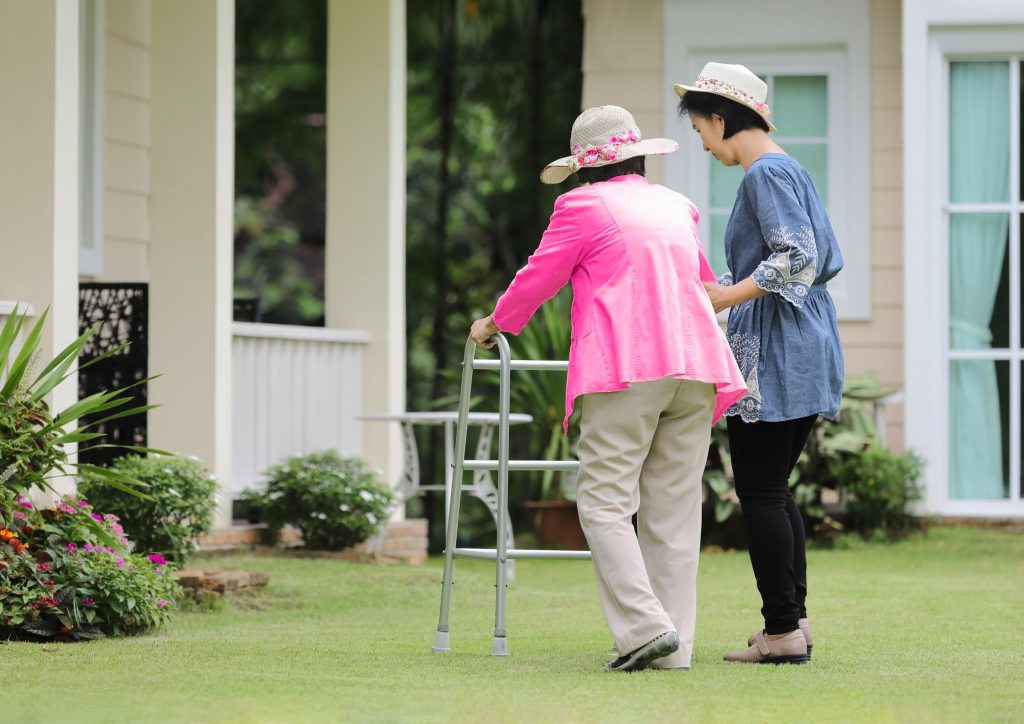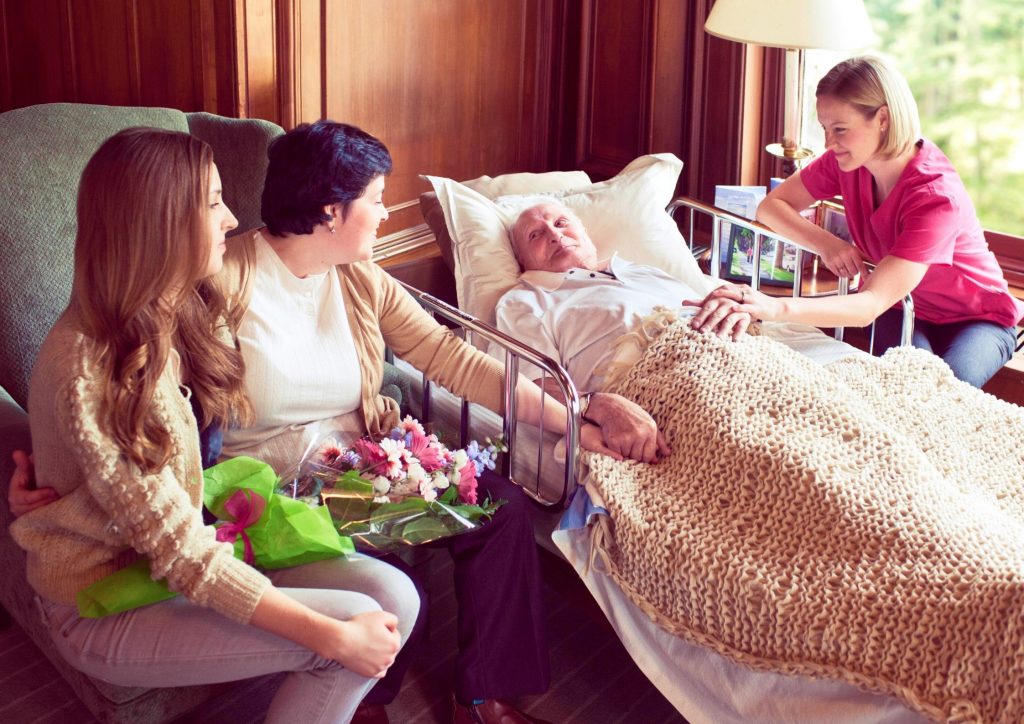The 5 Stages of Palliative Care
“We cannot change the outcome, but we can affect the journey” – Ann Richardson
Having a chronic disease, or life-limiting illness can take away a lot of freedoms. There is one thing, however, that each individual will always have a choice over, and that is how they would like to receive comfort and care to help manage their quality of life. One path many people choose is by embarking on a palliative care journey. What most people don’t know is, that just like life itself, palliative care travels through different stages, with each stage offering a range of medical, emotional, spiritual and psychosocial support services:
- Stage 1: Stable – Developing and Implementing the Care Plan
- Stage 2: Unstable – Adjusting the Care Plan & Preparing Emotionally
- Stage 3: Deteriorating – Shifting to End-of-Life-Care
- Stage 4: Terminal – Symptom Management, Emotional & Spiritual Care
- Stage 5: Bereavement – Support for Family Members, Loved Ones & Carers
What is Palliative Care?
The term Palliative Care means different things to different people. For some, it ignites an interest in having a career within the field and being part of a palliative care team. For others, these words trigger memories of grief due to losing a loved one who was receiving palliative care from healthcare professionals and other support services.
Many individuals living with life-limiting conditions don’t think palliative care is an option for them. However, in a lot of cases, palliative care begins quite soon after a diagnosis or during the early stages of treatment, and people can live for years while receiving palliative care.
Palliative care is very often misunderstood and while many people who live with a terminal illness may choose to receive palliative care services in the later stages of their journey, it’s not just there for those nearing the end of their life.
Palliative care is for anyone living with chronic diseases, or life-limiting illnesses that can’t be cured.
According to the World Health Organization (WHO), palliative care can help relieve the symptoms of, and treat a wide range, of diseases such as:
- Heart problems
- Different types of cancer
- Chronic respiratory illnesses
- AIDS
- Diabetes
- Chronic kidney and liver disease
- Multiple sclerosis
- Rheumatoid arthritis
- Chronic congenital disabilities
- Neurological disorders, such as dementia and Parkinson’s disease

The Palliative Care Team
Palliative care looks at each individual’s needs holistically catering to both their medical and non-medical needs, which can involve any of the following professionals:
Treating Health Professional
The Treating Health Professional, who can also be a General Practitioner if desired, will be the central point of an individual’s palliative care. They will work with specialist doctors and other allied health professionals to keep them feeling comfortable and continue to experience the best quality of life possible.
Registered Nurses
A Registered Nurse will be appointed to give ongoing treatment, if this is required, to ensure that each individual remains comfortable during their palliative care journey. Treatments can be provided in a healthcare setting, such as a hospital, or in the comfort of a home through the help of community nurses and home care providers.
Caregivers
Professional caregivers will visit as much as an individual needs, and wants, to ensure that their daily living is made easier through personal care and companionship. This care can last from a few hours to an around-the-clock team depending on the amount of care that is required.
Social Workers
Social workers can be available as a source of practical help as well as a guide towards sourcing key services including financial and family support.
Religious Groups
For those who are religious or spiritual, religious groups can also be part of the palliative care team. Support will be available to help individuals attend services. Visits can also be organised by a faith leader to assist with the practice of faith at home as well as offer emotional and spiritual support to them and their families.
Counsellors or Psychologists
Palliative care can be a very daunting and overwhelming experience for both the person receiving care and their families. Counsellors and psychologists are trained to listen, offer guidance, and ongoing support to help manage any worries, anxieties or fears that the individual or their families may have.
Charities or Support Groups
Organisations such as The Cancer Councill can help direct individuals and their families to additional specialist support services, and people who understand or have experienced a similar situation.
There are many people and groups who are involved to ensure that each palliative care journey is personalised and as comfortable as possible.

If you think palliative care is a good option for you or your loved one, these are the 5 stages of palliative care, in detail, to prepare you on what to expect at each stage of the caregiving journey and ensure the right support is always present at the right time.
Stage 1: Stable
Developing & Implementing the Care Plan
Palliative care can start at any phase but is commonly started as soon as an individual receives a prognosis of a life-limiting illness. This is when a plan is developed by a Treating Health Professional along, with any other specialist professionals who will be involved in the care journey to ensure plans are suitable for a client’s condition.
With guidance from healthcare and allied health professionals, the Treating Health Professional will detail what appropriate high-quality care services the individual will need. In addition, they will also see how these services will need to evolve as the illness progresses through each palliative care phase.
The initial plan will commonly cover areas such as:
- The current and future treatment plan
- The expected evolution of the illness
- Essential medication and symptom relief
- Any care preferences the individual desires, which can include whether an individual wants to stay at home, or what types of therapy they’d like to receive.
During this time, healthcare professionals will look at all the aspects of the care plan to ensure that the client stays as independent as possible. Some individuals receiving care might decide that relocating to a location that specialises in hospice and palliative care is best for them in the long term, while others will want to remain in the comfort of their own homes. If an individual is receiving care in their own home a Treating Health Professional’s role may also include sourcing caregivers, nurses, and other allied health professionals or making any adaptations with specialist equipment in the house to ensure safe mobility.

Stage 2: Unstable
Adjusting the Care Plan & Preparing Emotionally
If an individual’s illness is displaying worsening symptoms or new medical problems arise, the specialist palliative care team will urgently revisit the care plan and adjust (or add) any palliative care services to ensure that their client continues to be comfortable throughout their care journey.
During this time, emotional and mental support is offered to the individual and their families. During this time the focus is on the palliative care team working together to help prepare everyone for what may come and includes organising a safe space to discuss emotions with qualified counsellors, therapists or psychologists. Alternatively, religious gatherings (if applicable) and leisure activities are also encouraged to help manage any emotions, particularly anxiety and depression.

Stage 3: Deteriorating
Shifting to End-of-Life-Care
If an individual’s overall health and body functions continue to gradually worsen, with severe medical conditions continuing to develop, the palliative care team will start to shift from palliative care into the end of life care with periodic assessments of the care plan.
During this time, hospice care or increased home support is also taken into consideration to ensure that the individual receiving care continues to feel comfortable. Ongoing medical treatments are provided as appropriate including symptom relief and management.
Unfortunately, many individuals who are at this stage will only have weeks or months to live. This can cause immense distress to loved ones directly affected and their families. Both must receive as much psychosocial, emotional and spiritual care as needed to help manage the emotions of everyone involved during this unprecedented time.

Stage 4: Terminal
Symptom Management, Emotional & Spiritual Care
When an individual is experiencing a terminal illness this means that they are nearing the end of their life and may only have days left. During this stage, the primary focus is to ensure that the affected individual continues to be as comfortable as possible.
Terminal care will comprise of extensive physical and medical care within the loved one’s own home or hospital setting. During this stage of their palliative care journey, individuals may experience the following physical symptoms:
- Becoming bedridden
- Experiencing severe mobility issues
- A decrease or loss of appetite
- Difficulty in swallowing solids and medications
- A severe diagnosis that requires daily medical interventions
Aside from medical care, the palliative care team will also focus heavily on improving the quality of life for the individual and their families through emotional, and spiritual comfort. During this time, the care plan may also include additional end-of-life medications and spiritual services at the ready.

Stage 5: Bereavement
Support for Family Members, Loved Ones & Carers
In the final stage, the individual with the life-limiting illness has passed on. A loved one’s death can take an incredible toll on family members, carers and the rest of the palliative care team.
The focus of the care plan now shifts to providing support to family members, loved ones and carers through a range of bereavement services including:
- Emotional Support, through specific support groups
- Spiritual Support, if appropriate, through a faith leader
- Psychosocial support to help with grief, loss, and adjustment after a loved one’s death
The Bereavement Stage is dependent on how much support each individual’s needs, and can last from anywhere between weeks to months or as long as it is formally required with some cases taking as long as a year.

Regardless of an individual’s situation, everyone deserves comfort, quality of life, and respect for their personal treatment decisions and cultural or spiritual concerns at every stage in life. Nurse Next Door promises to provide you or your loved ones with the necessary palliative care and family support needed in the comfort of your own home or a care facility through our palliative care program. If you need support today please don’t hesitate to contact us.
At Nurse Next Door, we are celebrating ageing and are passionate about Making Lives Better.
To learn more about The Power of Happier Ageing you can download our report
or contact us today at 1300 600 247 to discuss how Nurse Next Door can help you keep doing what you love.
